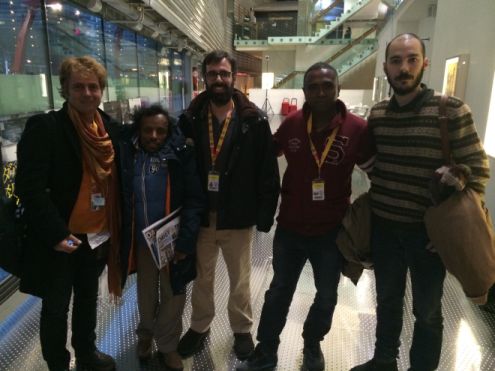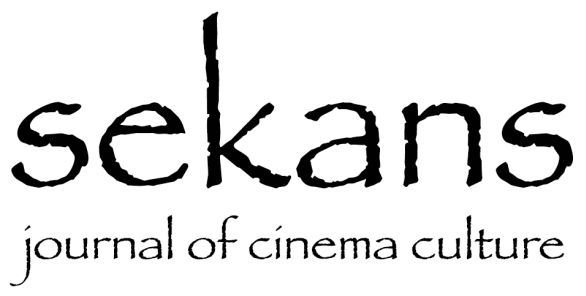A Brief Interview with Miguel Llanso at IFFR 2015
We made a brief interview with Miguel Llanso about the journey of his “post-apocalyptic surrealist science fiction romance” film Crumbs, soon after its world premiere at the International Film Festival Rotterdam (IFFR) 2015. Here is the trailer:
You can find the cast, crew and other info about the film at that link.
Altuğ Kaan Paçacı: You made a movie in a country which produces limited films per year; you are not only using the location as a setting but also working with the local people -from inside and outside of the industry-. On the other hand, it made me feel that this film could be produced somewhere else which has similar geographical formations. How was the movie changed with the different cultural exchanges?
Miguel Llanso: I think every film expresses a landscape, a moment of life, a circumstance and therefore the locations are not interchangeable. Can you imagine Herzog shooting Fitzcarraldo inside a Hollywood studio? The film is primarily a reflection of life experience. So, Crumbs had to be filmed in Ethiopia with actor Daniel Tadesse, with whom I started to collaborate some time ago. It had to be shot with producers Yohannes Feleke, Meseret Argaw and Daniel Taye Workou, soundman Quino Piñero and cinematographer Israel Seoane. And I was thinking about Atomizador making the music, from the very beginning. It doesn’t mean to experience a cultural exchange with a homogeneous unit that represents the other -"Ethiopia", but living with a group of people. And one by one these people represent a "culture". And that moment is unique. It’s not written in any screenplay, nor contained in any previous idea.
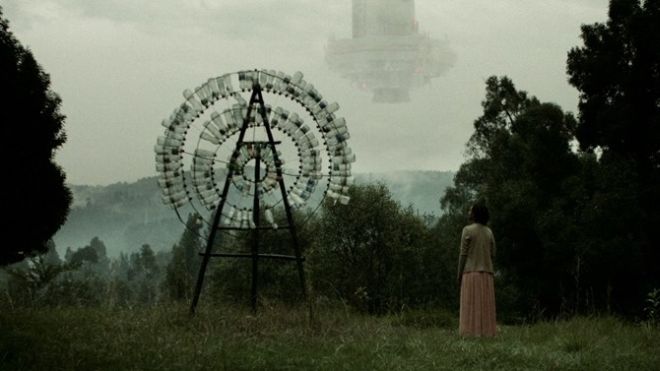
Altuğ: In your future imagination, being a good boy/girl is not enough for taking presents from Santa, you should firstly encounter bureaucratic obstacles. What kind of obstacles does a young director encounter, who wants to create his own language? For example, between which funds did you run around?
Miguel: Let’s talk about protocol and habit. Last night I was watching The Gospel According to St. Matthew by Pasolini and thought about something that may answer this question. I’m an atheist, and miracles and life of Jesus don’t seem very fascinating to me. They are ok. There is something much deeper in the film which is the relationship between Jesus and Mary. Pasolini chose his own mother for this role. A mother who has to accept the freedom of his son, his destiny, his adventures, despite the danger and uncertainty. The hero is not Jesus but the victory of humans when they mutually accept each other. So, after Maria cries when Jesus dies on the cross, after the duel comes acceptance in the face of Mary: "He lived as he wanted" and then Jesus resurrects. Pasolini died in a similar way. No one wants to die. Dying sucks. The most difficult thing for a young filmmaker is finding the balance between destiny and coexistence, creativity and survival. You have to be aware of not harming anyone in your way. Obstacles? When the Spanish public funds dismissed Crumbs, my childhood friend and executive producer Sergio Uguet de Resayre puts his own money in this venture. Two crazies driving.
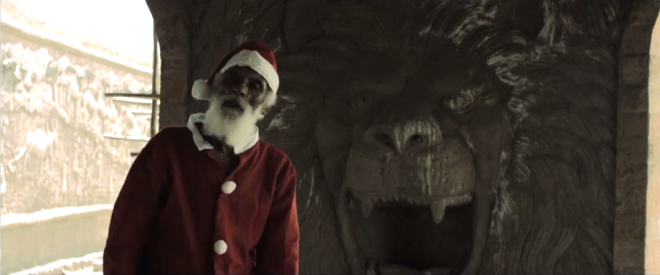
Altuğ: With practicing on different genre codes, you also trying to make your own audio-visual language. Long since, festivals have been a shelter for unconventional filmmakers. What do you think about IFFR’s support to new and unusual directors? What kind of impression did you and your crew have during the festival?
Miguel: IFFR is a small island, a garden within a rotten world that looks for profit and speculation in the artwork. At the festival gather all kinds of artists, recognized or lonely spirits. This is a miracle nowadays and I’m surprised that the neo-liberalist minds have not put yet the spotlight at the festival to blow it.
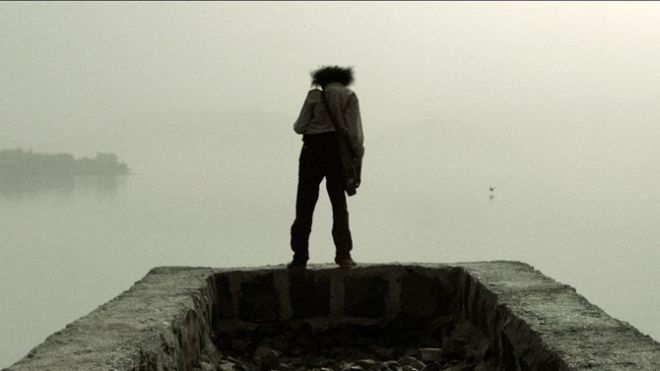
Altuğ: Nowadays one of the popular topics is, in comparison to major festivals’ -like Cannes, Berlin, Venice and Sundance- marketing power, the others have become weaker. Your film made its world premiere in IFFR. How did you draw your festival route to eliminate distribution problems?
Miguel: IFFR still brings together key stakeholders of the film industry thanks to its market “Cinemart”. It has allowed us to find sales agents like "New Europe Film Sales" and US distributor "Indiepix". We’re working with them to distribute the film worldwide. It is a very difficult job. It’s a very competitive sector with thousands of film being produced every year and there’s certain stress to recover the huge investment of money and labor. Your film can be seen by a lot of people worldwide and even so you can continue living just above the poverty line and very worried.
Altuğ: Even though many directors have trouble with entering competitions, they are also aware of winning awards means more audience and it helps them for making the following one. In Crumbs, we watched popular culture images become religious symbols. Today’s award statues may become tomorrow’s religious symbols, what do you think?
Miguel: People have plastic Oscars statues above the refrigerator. My grandmother used to have a mosaic of the Virgin of Guadalupe. Let everyone draw their own conclusions.
Altuğ: Thank you for your time. All the best Miguel!
